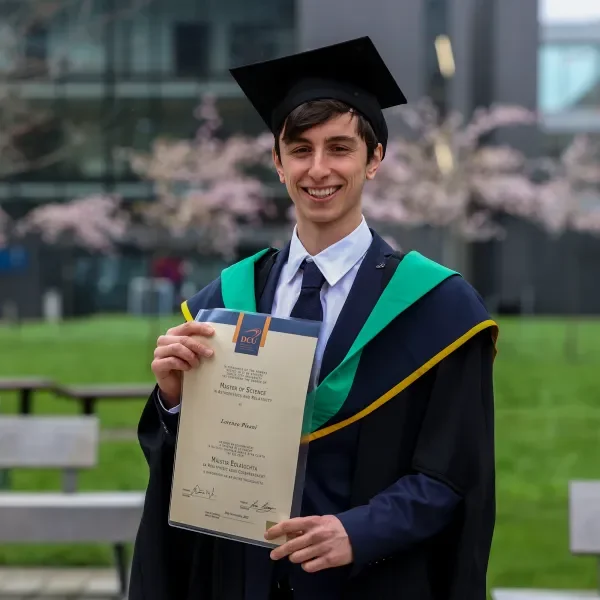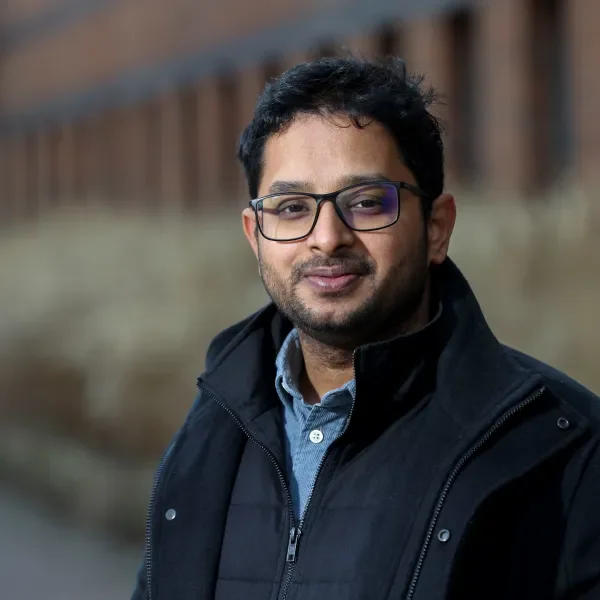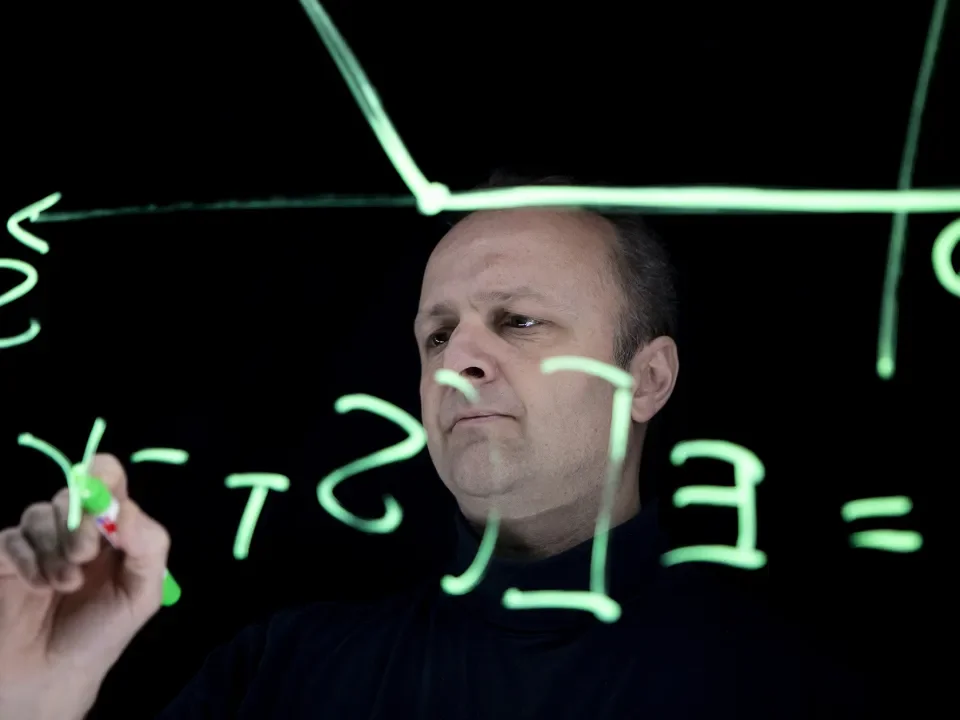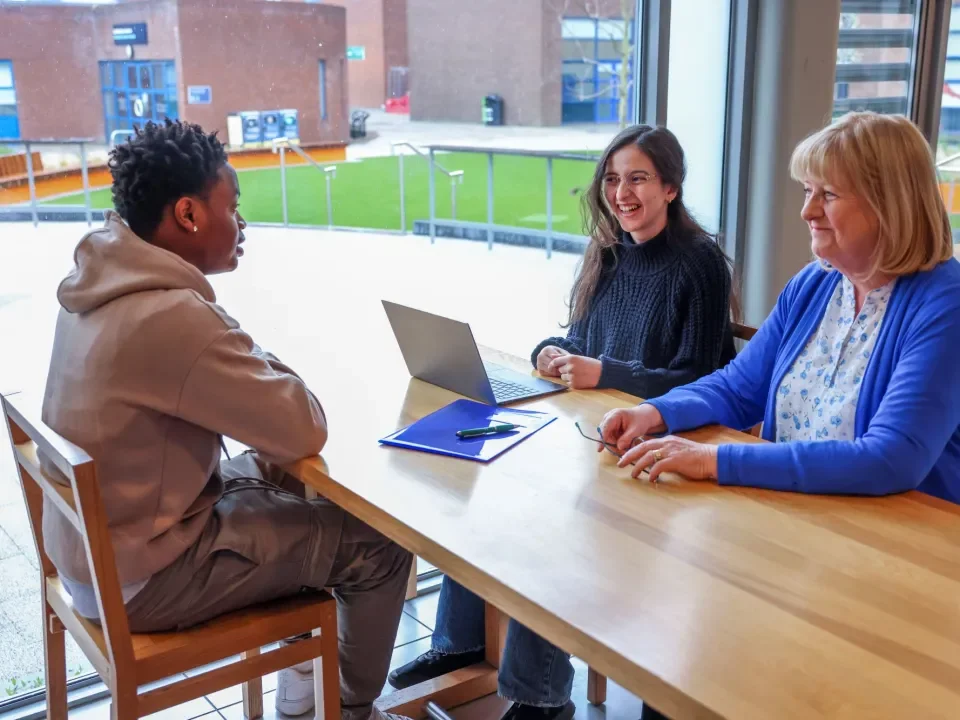Overview
As well as gaining a deep understanding of astrophysics and general relativity (GR), you¡¯ll learn valuable data analysis and computing skills that will open up fantastic employment opportunities.
This course is for you if you¡¯re curious about the universe and hold an undergraduate degree in physics, astrophysics, theoretical physics, mathematical sciences, applied mathematics or a closely related field.
From black holes to the intergalactic medium - and everything in between
During this cutting-edge one-year programme, you¡¯ll also delve into the key theory and concepts of astrophysics and GR, and gain skills to help you apply basic physical principles and mathematical tools to build a better understanding of our universe. You¡¯ll also complete an individual project supervised by researchers from the programme team and DCU¡¯s Centre for Astrophysics and Relativity.
There¡¯s a growing demand for graduates with the advanced skills and knowledge required to work in this complex field, so once you complete the course, you¡¯ll be highly sought after for roles in astrophysics and GR research, data analytics, computing and IT.
Why DCU
DCU People

¡°I have only good things to say about the University,¡± says Lorenzo Pisani, who recently graduated from DCU.
Read more about Lorenzo Pisani

¡°Mindblowing¡± is how Rahul Rai describes the things he learned while pursuing the MSc in Astrophysics and Relativity at DCU.
Read more about Rahul Rai
Careers & Further Options
Careers
You will be ideally positioned to undertake postgraduate research in Astrophysics and Relativity in DCU and elsewhere. Students will have the opportunity to work with CfAR researchers to develop research proposals and to seek research funds.
With the skills you develop in computing and data analysis, you will have excellent career opportunities in a wide range of employment sectors, including information and communications technology, data analytics, engineering, banking, finance and business consultancy.
"DCU graduates are highly sought after by employers. Our Graduates work in environments ranging from large multinationals to SMEs, family businesses and start-ups across every sector.
DCU Careers Service has a number of learning and development initiatives in place for our students, giving them the skills they need for a successful career path."
Entry Requirements
- For admission to the M.Sc. in Astrophysics and Relativity, candidates must have completed a recognized primary degree (NFQ Level 8) in Physics, Astrophysics, Theoretical Physics, Mathematical Sciences, Applied Mathematics or a closely related field (e.g. Engineering), with a minimum of a Second-Class Honours, Grade 1 Award (H2.1).
- Transfer from related Level 9 programmes in DCU or other third-level institutions is subject to having fulfilled educational qualifications of a standard equivalent to those outlined above.
- Recognition of Prior Learning (RPL) applicants are required to submit a cover letter along with their application under the Transcripts section of the portal, affirming their intent to apply for RPL. For more information on RPL see here.
- Candidates who are non-native speakers of English must satisfy the University of their competency in the English language. ´ó·¢ÌåÓýÔÚÏß_´ó·¢ÌåÓý-Ͷע|¹ÙÍø information about DCU's English language requirements can be found here.
Programme Structure
The course involves three main strands: Astrophysics, General Relativity, and Computational Science and Data Analysis. All topics are covered in the first semester of the course, laying the foundations for the advanced study of these topics in the second semester.
The programme is led and delivered by members of the Centre for Astrophysics & Relativity (CfAR), a research group based in the DCU School of Mathematical Science and the DCU School of Physical Science specialising in the areas of Astrophysics and Relativity. The group has particular expertise in the areas of black hole physics, gravitational waves, plasma astrophysics, turbulence, galaxy and star formation, cosmic magnetic fields and high energy astrophysics. CfAR research is published in the leading international journals, and members engage in research with a wide range of colleagues around the world.
Time commitment:
|
Online/blended/in-person: |
In person |
|
Day/evening/weekend: |
Day time |
|
Number of days on campus per week: |
4 - 5 |
|
Typical days(s) of week on campus: |
Monday to Friday |
|
Typical hours per day on campus: |
3 - 4 |
|
Independent learning time - hours per week: |
20 |
|
Additional information: |
Jointly delivered by the School of Mathematical Sciences and the School of Physical Sciences |
Please note this information is indicative only and subject to change.
In Astrophysics, you will study Plasma Astrophysics, High Energy Astrophysics, Galaxies, and will supplement this knowledge with the study of observational techniques.You will learn about the formation and evolution of galaxies. You will gain deep insight into the plasma astrophysics governing star formation, planet formation and interstellar turbulence. In relation to High Energy Astrophysics, you will study the processes that lead to the emission of X-rays and gamma-rays from different sources, and how these are detected.
In the General Relativity strand of the programme, you will study both astrophysical and fundamental physical properties of Black Holes, including gravitational collapse, the laws of black hole mechanics and Hawking radiation. You will learn about the generation of gravitational waves by the collision of black holes and other astrophysical processes and their propagation across the universe. You will also learn the science behind their detection by ground- and space-based observatories.
All students will also take modules in Computational Physics and in Data Analysis, including Machine Learning. As well as supporting your study of Astrophysics and Relativity, these modules will equip you with skills in computing and in analysing ¡®big data¡¯ that are of immediate relevance in a wide range of careers, including information and communications technology, engineering, banking and finance.
As part of the programme, all students undertake a project in a chosen area of Astrophysics or Relativity. Students are individually supervised by academics and researchers from CfAR, and apply their theoretical and computational skills to cutting edge research in Astrophysics and Relativity. In addition, by completing the project, students will develop transferable skills in relation to research, technical writing and scientific communication.
Fees and Funding
Fees
How To Apply
To apply for this programme:
- All Applicants must apply through DCU's Student Application Portal which is available here. Here's a quick step by step guide if you need help with your application.
- Provide Academic Transcripts for each and every year of study with English translation if applicable.
- If applicable, provide evidence of competence in the English language as per DCU entry requirements. Please see link http://www.dcu.ie/registry/english.shtml.
Please note if you are a non EU student and require a study visa, you are not eligible to apply for part-time programmes as study visas are only granted for full-time programmes.
Application Deadlines
Applications will be accepted on a rolling basis until the programme is full or until the following dates:
- Closing date for Non EU applicants is 1st July 2025.
- Closing date for EU applicants is 30th August 2025.
All entry requirements should be met before the commencement of the programme.
Application Queries
For EU applicant queries, please visit /registry/eu-postgraduate-taught-admissions or email postgraduateadmissions@dcu.ie
For non EU applicant queries, please visit /registry/international-admissions-undergraduate-and-postgraduate or email internationaladmissions@dcu.ie
Commencement of Programme
The programme commences in September 2025.
Life On Campus
At DCU, our students can expect a unique campus experience. We are known for our excellent teaching and learning facilities, our active clubs and societies, and our great social and sporting facilities. All this makes DCU an exciting place to be.
DCU has three academic campuses; Glasnevin, St. Patrick¡¯s and All Hallows (both in Drumcondra), all close to Dublin City centre.
They can be reached by public transport, Dublin Bus and Bus ?ireann, with our Drumcondra campuses a ten minute walk from Drumcondra Train Station. Glasnevin is a 20 minute walk from St Patrick¡¯s and All Hallows. They are also linked by Dublin Bus.
Each campus has a library (O¡¯Reilly, Cregan and Woodlock Hall), study spaces, restaurants, and on-campus residencies. There are sports facilities on Glasnevin and St. Patrick¡¯s, and there is a dedicated sports campus, St Claire¡¯s, located near Glasnevin on the Ballymun Road.
DCU¡¯s 19,000 students have access to exceptional teaching and learning facilities across our three academic campuses.
These include modern learning theatres, research centres, a new media and TV studio, radio/podcast studios, computer suites and advanced labs in the areas of Languages, Engineering, Physics, Chemistry and Biotechnology, as well as a Sports Performance centre and a training hospital ward. In 2021, we opened our first virtual reality ¡®Leadership Lab¡¯, which is located in our Business School.
We continue to improve and update our facilities. For example, construction of a new world-class STEM facility is underway on the Glasnevin campus. With capacity for an extra 3,000 STEM students, this facility will advance DCU¡¯s international reputation for excellence in science and health, computing and engineering disciplines.
Studying in DCU isn¡¯t just about course work. The university is rich in student life and activities.
There are more than 140 clubs and societies for students in DCU, with ¡®Clubs & Socs¡¯ days taking place on both the Glasnevin and Drumcondra campuses at the start of the academic year. They span everything from rugby to rock climbing, anime to jazz.
For many students, sport is an important part of the DCU experience. DCU¡¯s Sports Complex boasts a 25 metre swimming pool, fitness centre gym, all-weather pitches and squash courts, as well as soccer, GAA and rugby pitches. DCU D¨®chas ?ireann, the university¡¯s GAA club, is the largest third level Gaelic Games club in the country. Meanwhile, DCU Athletics has been Ireland¡¯s highest achieving university club for many years. And DCU has dozens of other clubs to get involved in, from Archery to Weightlifting.
The Glasnevin campus is home to our purpose built, state-of-the-art student centre, The U, which serves the needs of a rapidly growing student body. Here, you will find the Student Leadership and Lifeskills Centre, performing arts and cultural spaces for students and the wider community, and the Entrepreneurship and Innovation Hub. Also located on our Glasnevin campus is The Helix, our renowned performing arts centre.
On our St Patrick¡¯s campus, we have the Java Student Hub, a vibrant, warm and welcoming space where students can meet for coffee, play music, use the projector to watch events, or just relax. The walls of the Java Hub were designed based on the cultural history of St Patrick¡¯s Campus, including the special references to the notable sporting history and history of the arts.
We have a number of academic, professional and social supports for students.
Student Advice & Learning Skills Centre - Offers a wide range of supports and services to students and advice
The Writing Centre - drop-in writing workshops for students through the academic year
Maths Learning Centre - provides maths support for students of all ability levels with maths modules
Student Learning - facilitate the transition from passive to active learning for students at DCU, by teaching study skills, nurturing critical thinking and building student confidence.
Careers work with students to help them on their professional journey into graduate employment.
Our student support team offers a comprehensive support programme, helping students make that all important transition into university life and focusing on building confidence and skills which are key to success at third level.

DCU Glasnevin Campus
FAQs
Is DCU all one campus?
DCU is a multi campus university - the Glasnevin, St Patrick's and All Hallows campuses. The St Patrick's campus is where the Education courses are taught and some of the subjects from the BA Joint Honours degree. There is a 20-25 minute walk between the campuses but there are buses and bikes available to go between them also.
´ó·¢ÌåÓýÔÚÏß_´ó·¢ÌåÓý-Ͷע|¹ÙÍø here to see maps of all of our campuses
If I'm studying on the St Patrick's campus, can I use the library and sports centre on the Glasnevin campus?
Yes, all facilities such as sports and accommodation are open for all DCU students to avail of.
Are there libraries in DCU and if they have wifi and work stations?
We have a brand new state of the art four floor library on our St. Patrick's Campus which complements the existing library on the Glasnevin campus. There is free wifi, work stations as well as desktop computers.
Does DCU provide accommodation?
DCU does have on-campus accommodation for undergraduate and postgraduate students, and you can find out more and apply via the Accommodation Office webpage.






